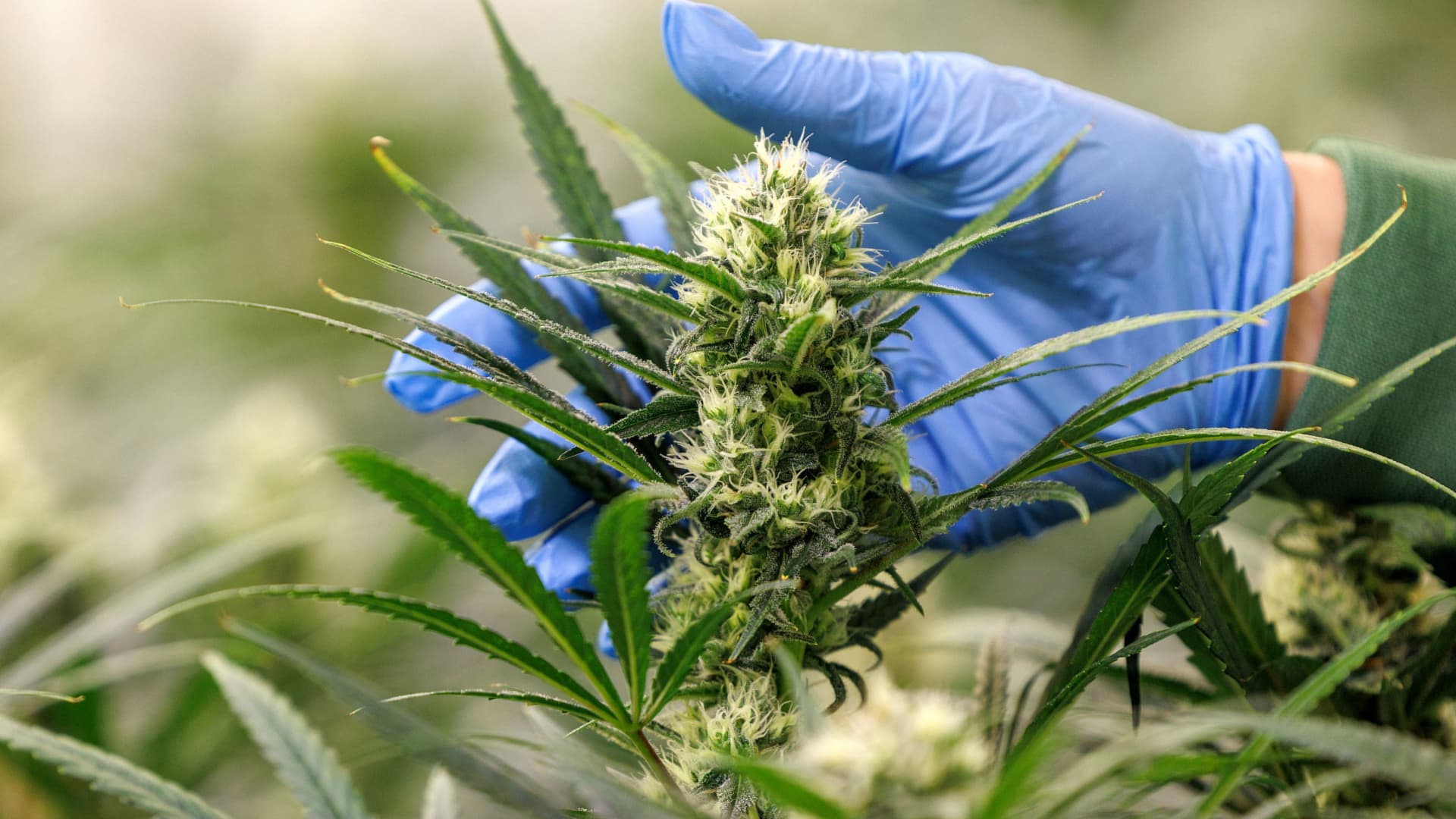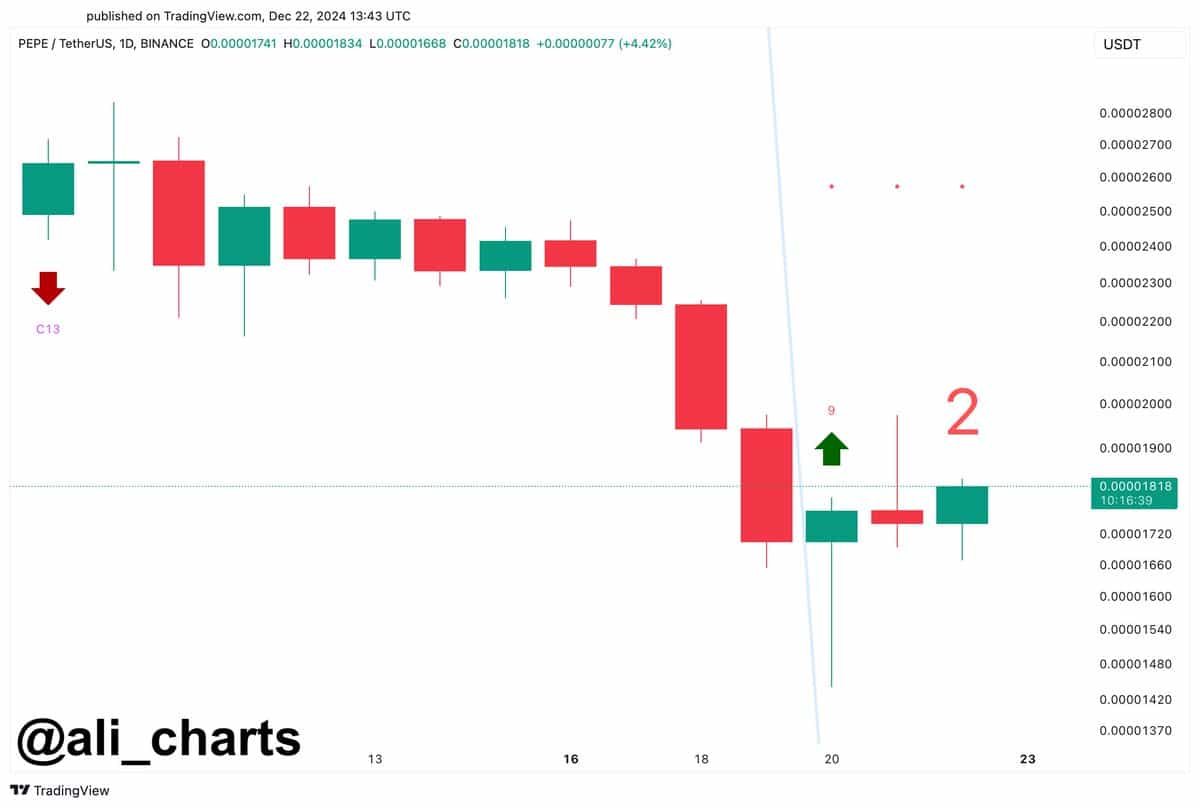An employee of Aurora Deutschland GmbH, a manufacturer of medical Cannabis products, inspects a flowering Cannabis plant in a greenhouse in Leuna, Germany September 11, 2023.
Lisi Niesner | Reuters
Investor interest in marijuana-related ETFs is surging in September after a period of dwindling interest.
This upswing, the most significant in recent years, is a result of last month’s recommendation by the U.S. Department of Health and Human Services (HHS) to ease restrictions on marijuana. The recommendation came after a review of its classification under the Controlled Substances Act.
This rapid turnaround in sentiment marks a departure for an industry constrained by slow federal reform. It follows several quarters of sluggish growth and even losses for some funds.
ETFMG Alternative Harvest (MJ) and AdvisorShares Pure US Cannabis (MSOS) in particular, have outperformed the Dow Jones Industrial Average and the S&P 500 this quarter, with gains of approximately 47% and 56%, respectively. Meanwhile, the Dow and S&P have only seen marginal increases of about 0.5%.
“This is essentially a continuation of how these stocks trade, which is heavily influenced by federal catalysts,” said Canaccord Genuity analyst Matt Bottomley. “The velocity is much higher on these federal headlines.”
Last month’s announcement also boosted the shares of several cannabis companies, including Canopy Growth, Tilray Brands, and Cronos Group.
The marijuana sector has struggled in recent years as investor interest declined, leading to a shortage of capital. Despite 39 states legalizing marijuana for recreational or medical use, the industry has faced limited access to financing and a broader market due to its Schedule I classification and federal prohibition.
AdvisorShares, the largest cannabis fund manager, recently closed its Poseidon Dynamic Cannabis ETF. The fund’s last day of trading was August 25. On September 1, it liquidated its assets and distributed the proceeds to its shareholders.
Regarding federal reform, the HHS recommendation, directed by the Biden administration and conveyed in a letter to the Drug Enforcement Agency, has signaled the possibility of more significant changes.
This could include the passage of the Secure and Fair Enforcement Banking Act (SAFE), a congressional bill that would enable banks to provide services to legal marijuana businesses. Currently, banking institutions are hesitant to engage with substances under the Controlled Substances Act due to the unchanged federal laws.
“Each time legislation like the SAFE Banking Act is proposed, we see an increase in investor interest,” said Sundie Seefried, CEO of Safe Harbor Financial, a digital-first commercial banking institution. “This milestone could be a turning point, providing the much-needed regulatory stability that investors have been seeking.”
SAFE Banking is currently progressing through Congress, with a vote expected soon in the Senate Banking Committee. Additionally, the DEA has commenced its review of marijuana’s classification and will submit a proposal to the Attorney General, who will make the final decision on reclassification.
Bottomley believes that as these processes unfold, it becomes increasingly likely that institutional capital, which previously avoided the sector, will begin entering the space. However, whether this momentum continues depends on whether we receive further updates from the DEA in a timely manner.
“If they go silent in the coming months and into January, I wouldn’t be surprised if the sector stagnates,” Bottomley added.
— CNBC’s Christopher Hayes contributed to this report.














